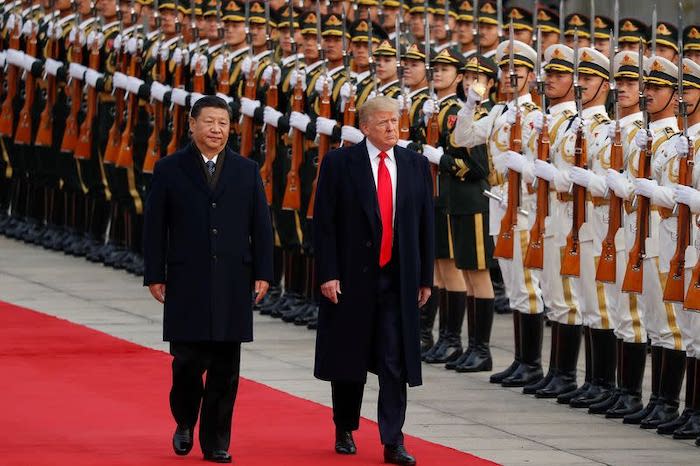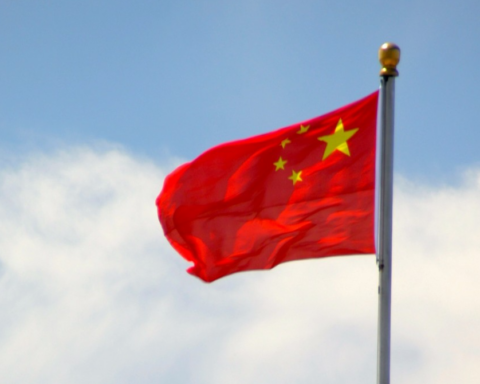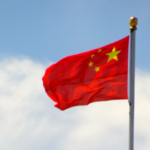Analysts say China hopes to sit down with officials from the new Trump administration to see if a deal can be negotiated to avoid a new trade war.
Beijing is looking for bargaining chips in negotiations with the new U.S. administration to negate any possible outcome. Additional trade tariffs and other potentially harmful strikes against its already existing fragile economythey said.
As Donald Trump steps up tariff threats against China, Beijing is moving to defeat the next U.S. president with its own restrictions and bring Washington to the negotiating table ahead of an all-out trade war, analysts say.
See also: Trump ‘invites China’s Xi Jinping to take office’ amid tariff spat
Learning from the lessons of the last trade war during Trump’s first term, China is seeking incentives to bargain over contentious aspects of the relationship, such as trade, investment and technology. They expressed concern that the new tariffs would have a harmful impact on the economy.
This week, China launched U.S. chip giant Nvidia suspected of antitrust violationsPreviously, the United States banned the export of rare minerals to the United States.
“We have to look at this as an opening bid that could ultimately turn into negotiations with the U.S., rather than just imposing tariffs and then everyone walking away,” said Fred Neumann, chief Asia economist at HSBC.
George Magnus, a researcher at the China Center at Oxford University, said that apart from the “doomsday declaration” of imposing 60% tariffs on all Chinese goods, China is ready to deal with almost all tariffs.
China, the world’s second-largest economy, now dominates the world in areas such as electric vehicles and green energy, and is keen on buying back Boeing jets in 2017 after finding alternatives such as Airbus planes and its own COMAC C919s. and reduced demand for large gasoline-powered cars.
But China is far from self-sufficient.
Analysts say a new trade war with the world’s largest economy will still hurt China more as Washington could impose higher import tariffs on its goods and further cut China out of supply chains
Given the increasingly pessimistic global trade outlook and weak domestic consumer demand, China still needs to import strategic materials such as advanced microchips and other high-tech equipment from the United States and relies on American consumers to buy its goods.
Alicia Garcia-Herrero, chief economist for Asia Pacific at Natixis, said Beijing hopes to sit down with Trump and ensure the renewal of the China-U.S. technology agreement before Trump imposes more restrictions on U.S. high-tech exports. .
The agreement, which enabled scientific cooperation between the two countries, expired in August, and talks to renew it are unlikely to be completed before Trump takes office on January 20.
She added that while China’s Huawei has made significant investments in its advanced chip manufacturing capabilities, its commercial viability remains unclear, prompting Chinese negotiators to sit down with their U.S. counterparts and strike a deal to ensure a steady supply of U.S.-made chips.
Energy and food trading possible
Under the terms of the “Phase One” deal that ended the first trade war, Beijing spent two years agreeing to buy an additional $200 billion in U.S. goods and services.
This time, China has new carrots, such as increased purchases of oil and liquefied natural gas, since the United States currently extracts more than it consumes.
“Trump boasted during the campaign: ‘Drill it, baby, drill it,’ so (he) needs demand support,” said Bo Zhengyuan, a Shanghai-based partner at consulting firm Plenum.
Bo Xilai said that given the increasing restrictions on chip exports, the United States can still sell agricultural products, commodities, energy and other goods to China.
When asked for comment, China’s Ministry of Commerce expressed its willingness to engage and communicate with the Trump administration’s economic and trade team.
But if the United States believes that China’s position is incorrect, Beijing also has a big stick to defeat Washington. Failure to fulfill previous purchase commitments Meaning it will gain more from tariffs than negotiated.
American businesses feel left out
Michael Hart, president of the American Chamber of Commerce in China, said that American companies are already feeling the pressure.
“American companies and other foreign companies are really concerned about whether they can actually enter this market,” Hart said. “Can we still sell to China? Is there an outright ban on us?
A September survey by the Shanghai Chapter of the American Chamber of Commerce showed that business confidence among American companies in China is at its lowest point since 1999.
There are also non-economic factors at play. Trump promises to impose 10% tariffs on Chinese goods to force Beijing to take more measures to stop it Fentanyl flows into the United States.
“Using trade restrictions for political reasons will ultimately make tensions more difficult,” HSBC’s Neumann said.
Fentanyl tariffs also reflect China’s import restrictions on trading partners that rankle Beijing over issues such as human rights, Taiwan and the South China Sea.
“This takes a page from China’s coercion playbook,” Magnus said. “I think they’ll take it as a slap in the face.”
- Reuters Additional editing by Jim Pollard
See also:
China launches antitrust investigation Nvidia “faces $1 billion fine”
China’s central bank ‘allows yuan to depreciate’ as trade risks rise
Trump’s warning of 100% tariffs on BRICS rattles Asian currencies
The United States will review its relationship with Hong Kong banks, “Hong Kong is now a crime center”
Economists say Trump will not impose 60% tariffs on China as soon as possible
Chinese ship suspected of cutting undersea cable in Baltic Sea
Major U.S. banks cut China growth forecasts amid industrial slowdown
Profits of U.S. and EU companies and confidence in China continue to decline
U.S. sanctions 8 Chinese pharmaceutical companies over fentanyl trade













